Frequent persons on Morocco's street signs
countries
54 names / 405 streets
Mohammed V of Morocco
 93
Mohammed al-Khamis bin Yusef bin Hassan al-Alawi, better known simply Mohammed V, was the last Sultan of Morocco from 1927 to 1953 and from 1955 to 1957, and first King of Morocco from 1957 to 1961....
93
Mohammed al-Khamis bin Yusef bin Hassan al-Alawi, better known simply Mohammed V, was the last Sultan of Morocco from 1927 to 1953 and from 1955 to 1957, and first King of Morocco from 1957 to 1961....
Hassan II of Morocco
 76
Hassan II was King of Morocco from 1961 until his death in 1999.
76
Hassan II was King of Morocco from 1961 until his death in 1999.
Mehmed VI
 23
Mehmed VI Vahideddin, also known as Şahbaba among the Osmanoğlu family, was the last sultan of the Ottoman Empire and the penultimate Ottoman caliph, reigning from 4 July 1918 until 1 November 1922,...
23
Mehmed VI Vahideddin, also known as Şahbaba among the Osmanoğlu family, was the last sultan of the Ottoman Empire and the penultimate Ottoman caliph, reigning from 4 July 1918 until 1 November 1922,...
Mohammed Ben Aarafa
 15
Mohammed Ben Aarafa, or Ben Arafa, was a paternal first cousin once removed of Sultan Mohammed V of Morocco; he was put in Mohammed V's place by the French after they exiled Mohammed V to Madagascar...
15
Mohammed Ben Aarafa, or Ben Arafa, was a paternal first cousin once removed of Sultan Mohammed V of Morocco; he was put in Mohammed V's place by the French after they exiled Mohammed V to Madagascar...
Prince Moulay Rachid of Morocco
 15
Prince Moulay Rachid of Morocco, also known as Prince Moulay Rachid ben al-Hassan, is a member of the Alawi dynasty. He was the youngest child of the late King Hassan II and his wife, Lalla Latifa....
15
Prince Moulay Rachid of Morocco, also known as Prince Moulay Rachid ben al-Hassan, is a member of the Alawi dynasty. He was the youngest child of the late King Hassan II and his wife, Lalla Latifa....
Muhammad Zarqtuni
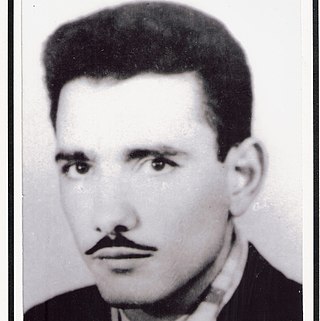 12
Muhammad Zarqtuni was a Moroccan nationalist born in Casablanca, Morocco. He was active in the Moroccan Nationalist Movement and is considered a symbol of Moroccan resistance to French colonialism.
12
Muhammad Zarqtuni was a Moroccan nationalist born in Casablanca, Morocco. He was active in the Moroccan Nationalist Movement and is considered a symbol of Moroccan resistance to French colonialism.
Prince Moulay Abdallah of Morocco
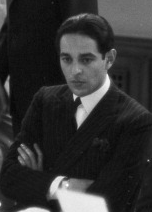 11
Prince Moulay Abdallah of Morocco, KCVO, was the brother of Moulay Hassan, later King Hassan II of Morocco and the son of King Mohammed V of Morocco (1909–1961) and his second wife, Lalla Abla bint...
11
Prince Moulay Abdallah of Morocco, KCVO, was the brother of Moulay Hassan, later King Hassan II of Morocco and the son of King Mohammed V of Morocco (1909–1961) and his second wife, Lalla Abla bint...
Ismail Ibn Sharif
 10
Moulay Ismail Ibn Sharif, born around 1645 in Sijilmassa and died on 22 March 1727 at Meknes, was a Sultan of Morocco from 1672 to 1727, as the second ruler of the 'Alawi dynasty. He was the seventh...
10
Moulay Ismail Ibn Sharif, born around 1645 in Sijilmassa and died on 22 March 1727 at Meknes, was a Sultan of Morocco from 1672 to 1727, as the second ruler of the 'Alawi dynasty. He was the seventh...
Yusef of Morocco
 9
Moulay Yusef ben Hassan, born in Meknes on 1882 and died in Fes in 1927, was the 'Alawi sultan of Morocco from 1912 to 1927. He was the son of Hassan I of Morocco, who was the son of Muhammad IV of...
9
Moulay Yusef ben Hassan, born in Meknes on 1882 and died in Fes in 1927, was the 'Alawi sultan of Morocco from 1912 to 1927. He was the son of Hassan I of Morocco, who was the son of Muhammad IV of...
Yusuf ibn Tashfin
 8
Yusuf ibn Tashfin, also Tashafin, Teshufin, was a Sanhaja leader of the Almoravid Empire. He cofounded the city of Marrakesh and led the Muslim forces in the Battle of Sagrajas.
8
Yusuf ibn Tashfin, also Tashafin, Teshufin, was a Sanhaja leader of the Almoravid Empire. He cofounded the city of Marrakesh and led the Muslim forces in the Battle of Sagrajas.
Yaqub al-Mansur
 7
Abū Yūsuf Yaʿqūb ibn Yūsuf ibn Abd al-Muʾmin al-Manṣūr, commonly known as Yaqub al-Mansur or Moulay Yacoub, was the third Almohad Caliph. Succeeding his father, al-Mansur reigned from 1184 to 1199....
7
Abū Yūsuf Yaʿqūb ibn Yūsuf ibn Abd al-Muʾmin al-Manṣūr, commonly known as Yaqub al-Mansur or Moulay Yacoub, was the third Almohad Caliph. Succeeding his father, al-Mansur reigned from 1184 to 1199....
Umar
 6
Umar ibn al-Khattab was the second caliph, ruling from August 634 until his assassination in November 644. A prominent companion and father-in-law of the Islamic prophet Muhammad, Umar succeeded Abu...
6
Umar ibn al-Khattab was the second caliph, ruling from August 634 until his assassination in November 644. A prominent companion and father-in-law of the Islamic prophet Muhammad, Umar succeeded Abu...
Allal al-Fassi
 5
Muhammad Allal al-Fassi was a Moroccan politician, writer, poet, Pan-Arabist and Islamic scholar.
5
Muhammad Allal al-Fassi was a Moroccan politician, writer, poet, Pan-Arabist and Islamic scholar.
Mohammed ben Abdallah
 5
Sidi Mohammed ben Abdallah al-Khatib, known as Mohammed III, born in 1710 in Fes and died on 9 April 1790 in Meknes, was the Sultan of Morocco from 1757 to 1790 as a member of the 'Alawi dynasty. He...
5
Sidi Mohammed ben Abdallah al-Khatib, known as Mohammed III, born in 1710 in Fes and died on 9 April 1790 in Meknes, was the Sultan of Morocco from 1757 to 1790 as a member of the 'Alawi dynasty. He...
Avicenna
 5
Ibn Sina, commonly known in the West as Avicenna, was a preeminent philosopher and physician of the Muslim world, flourishing during the Islamic Golden Age, serving in the courts of various Iranian...
5
Ibn Sina, commonly known in the West as Avicenna, was a preeminent philosopher and physician of the Muslim world, flourishing during the Islamic Golden Age, serving in the courts of various Iranian...
Hassan I of Morocco
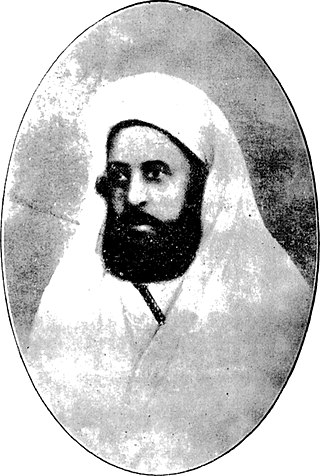 5
Mawlay Hassan bin Mohammed, known as Hassan I, born in 1836 in Fes and died on 9 June 1894 in Tadla, was a sultan of Morocco from 12 September 1873 to 7 June 1894, as a ruler of the 'Alawi dynasty....
5
Mawlay Hassan bin Mohammed, known as Hassan I, born in 1836 in Fes and died on 9 June 1894 in Tadla, was a sultan of Morocco from 12 September 1873 to 7 June 1894, as a ruler of the 'Alawi dynasty....
Sharif ibn Ali
 5
Abul Amlak Moulay Sharif ibn 'Ali was an Arab Emir of Tafilalt from 1631 to 1636. He was a sharif whose family claimed to be descended from the Islamic prophet Muhammad through his grandson Hasan....
5
Abul Amlak Moulay Sharif ibn 'Ali was an Arab Emir of Tafilalt from 1631 to 1636. He was a sharif whose family claimed to be descended from the Islamic prophet Muhammad through his grandson Hasan....
Hoummane El Fetouaki
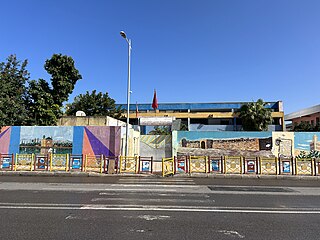 4
Hoummane El Fetouaki est un nationaliste, résistant et ancien combattant marocain de l'Armée de libération nationale (ALN).
4
Hoummane El Fetouaki est un nationaliste, résistant et ancien combattant marocain de l'Armée de libération nationale (ALN).
Abd al-Mu'min
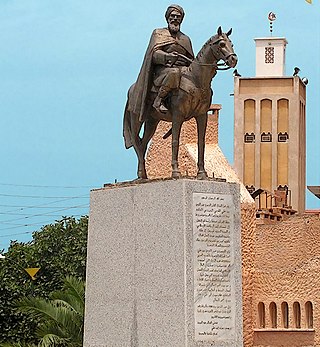 4
Abd al Mu'min was a prominent member of the Almohad movement. Although the Almohad movement itself was founded by Ibn Tumart, Abd al-Mu’min was the founder of the ruling dynasty and creator of the...
4
Abd al Mu'min was a prominent member of the Almohad movement. Although the Almohad movement itself was founded by Ibn Tumart, Abd al-Mu’min was the founder of the ruling dynasty and creator of the...
Ibn Khaldun
 4
Ibn Khaldun was an Arab sociologist, philosopher, and historian widely acknowledged to be one of the greatest social scientists of the Middle Ages, and considered by many to be the father of...
4
Ibn Khaldun was an Arab sociologist, philosopher, and historian widely acknowledged to be one of the greatest social scientists of the Middle Ages, and considered by many to be the father of...
Mohammed Mokhtar Soussi
 4
Mohammed al-Mokhtar Soussi was a Moroccan Berber scholar, politician and writer who played an important role in the years before Morocco's independence in 1956. Born in the village of Illigh, he was...
4
Mohammed al-Mokhtar Soussi was a Moroccan Berber scholar, politician and writer who played an important role in the years before Morocco's independence in 1956. Born in the village of Illigh, he was...
Tariq ibn Ziyad
 4
Ṭāriq ibn Ziyād, also known simply as Tarik in English, was an Umayyad commander who initiated the Muslim conquest of Visigothic Hispania in 711–718 AD. He led an army and crossed the Strait of...
4
Ṭāriq ibn Ziyād, also known simply as Tarik in English, was an Umayyad commander who initiated the Muslim conquest of Visigothic Hispania in 711–718 AD. He led an army and crossed the Strait of...
Mbarek Bekkay
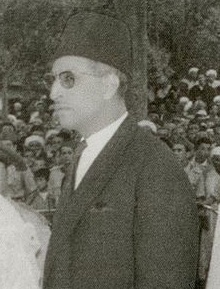 3
Mbarek Bekkay was the 1st Prime Minister of Morocco between December 7, 1955, and April 15, 1958. Bekkay held the rank of colonel in the French army. He was the first Prime Ministers of Morocco since...
3
Mbarek Bekkay was the 1st Prime Minister of Morocco between December 7, 1955, and April 15, 1958. Bekkay held the rank of colonel in the French army. He was the first Prime Ministers of Morocco since...
Slimane of Morocco
 3
Mawlay Sulayman bin Mohammed, born on 28 June 1766 in Tafilalt and died on 28 November 1822 in Marrakesh, was a Sultan of Morocco from 1792 to 1822, as a ruler of the 'Alawi dynasty. He was...
3
Mawlay Sulayman bin Mohammed, born on 28 June 1766 in Tafilalt and died on 28 November 1822 in Marrakesh, was a Sultan of Morocco from 1792 to 1822, as a ruler of the 'Alawi dynasty. He was...
Allal al-Fassi
 3
Muhammad Allal al-Fassi was a Moroccan politician, writer, poet, Pan-Arabist and Islamic scholar.
3
Muhammad Allal al-Fassi was a Moroccan politician, writer, poet, Pan-Arabist and Islamic scholar.
Brahim Roudani
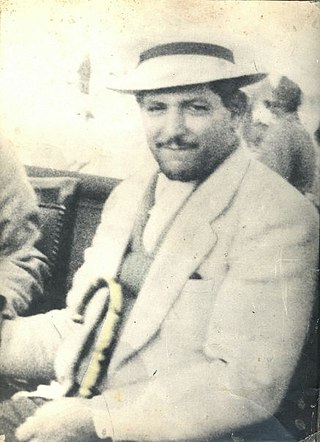 3
Brahim Roudani est un riche commerçant et résistant marocain au colonialisme français. Il est membre fondateur de l'organisation secrète marocaine « Al-Mounaddama Sirriya » à la fin des années 1940.
3
Brahim Roudani est un riche commerçant et résistant marocain au colonialisme français. Il est membre fondateur de l'organisation secrète marocaine « Al-Mounaddama Sirriya » à la fin des années 1940.
Moulay Hassan, Crown Prince of Morocco
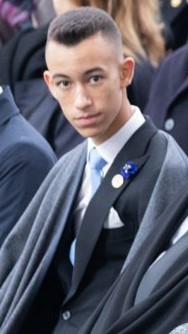 3
Moulay Hassan bin Mohammed is Crown Prince of Morocco. He is the elder child of King Mohammed VI of Morocco and Princess Lalla Salma. He has a younger sister, Princess Lalla Khadija. He is named...
3
Moulay Hassan bin Mohammed is Crown Prince of Morocco. He is the elder child of King Mohammed VI of Morocco and Princess Lalla Salma. He has a younger sister, Princess Lalla Khadija. He is named...
Patrice Lumumba
 3
Patrice Émery Lumumba, born Isaïe Tasumbu Tawosa, was a Congolese politician and independence leader who served as the first prime minister of the Democratic Republic of the Congo from June until...
3
Patrice Émery Lumumba, born Isaïe Tasumbu Tawosa, was a Congolese politician and independence leader who served as the first prime minister of the Democratic Republic of the Congo from June until...
Mohammed VI of Morocco
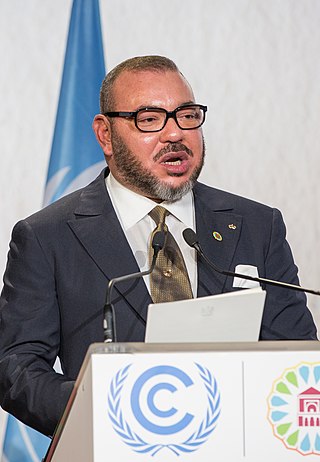 3
Mohammed VI is King of Morocco. A member of the 'Alawi dynasty, he acceded to the throne on 23 July 1999, upon the death of his father, King Hassan II.
3
Mohammed VI is King of Morocco. A member of the 'Alawi dynasty, he acceded to the throne on 23 July 1999, upon the death of his father, King Hassan II.
Qadi Iyad
 3
ʿIyāḍ ibn Mūsā (1083–1149) (Arabic: القاضي عياض بن موسى, formally Abū al-Faḍl ʿIyāḍ ibn Mūsā ibn ʿIyāḍ ibn ʿAmr ibn Mūsā ibn ʿIyāḍ ibn Muḥammad ibn ʿAbd Allāh ibn Mūsā ibn ʿIyāḍ al-Yaḥṣubī al-Sabtī,...
3
ʿIyāḍ ibn Mūsā (1083–1149) (Arabic: القاضي عياض بن موسى, formally Abū al-Faḍl ʿIyāḍ ibn Mūsā ibn ʿIyāḍ ibn ʿAmr ibn Mūsā ibn ʿIyāḍ ibn Muḥammad ibn ʿAbd Allāh ibn Mūsā ibn ʿIyāḍ al-Yaḥṣubī al-Sabtī,...
Mohammed Abdu
 3
Mohammed Abdu is a Saudi singer who is renowned across the Middle East and Arab world. He has been described as "Artist of the Arabs."
3
Mohammed Abdu is a Saudi singer who is renowned across the Middle East and Arab world. He has been described as "Artist of the Arabs."
Uqba ibn Nafi
 3
ʿUqba ibn Nāfiʿ ibn ʿAbd al-Qays al-Fihrī al-Qurashī, also simply known as Uqba ibn Nafi, was an Arab general serving the Rashidun Caliphate since the reign of Umar and later the Umayyad Caliphate...
3
ʿUqba ibn Nāfiʿ ibn ʿAbd al-Qays al-Fihrī al-Qurashī, also simply known as Uqba ibn Nafi, was an Arab general serving the Rashidun Caliphate since the reign of Umar and later the Umayyad Caliphate...
Abdelaziz of Morocco
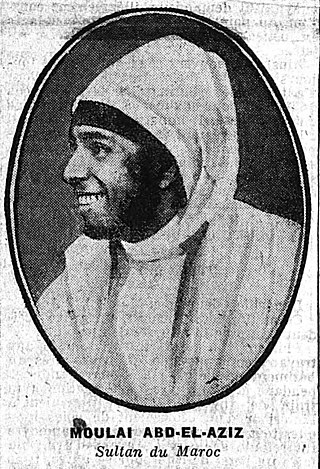 3
Moulay Abd al-Aziz bin Hassan, born on 24 February 1881 in Marrakesh and died on 10 June 1943 in Tangier, was a sultan of Morocco from 9 June 1894 to 21 August 1908, as a ruler of the 'Alawi dynasty....
3
Moulay Abd al-Aziz bin Hassan, born on 24 February 1881 in Marrakesh and died on 10 June 1943 in Tangier, was a sultan of Morocco from 9 June 1894 to 21 August 1908, as a ruler of the 'Alawi dynasty....
Ibn al-Haytham
 2
Ḥasan Ibn al-Haytham was a medieval mathematician, astronomer, and physicist of the Islamic Golden Age from present-day Iraq. Referred to as "the father of modern optics", he made significant...
2
Ḥasan Ibn al-Haytham was a medieval mathematician, astronomer, and physicist of the Islamic Golden Age from present-day Iraq. Referred to as "the father of modern optics", he made significant...
Abderrahim Bouabid
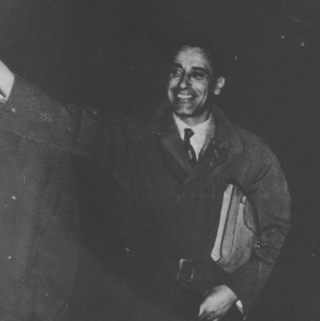 2
Abderrahim Bouabid was a Moroccan politician, and head of the left-wing Socialist Union of Popular Forces (SUPF) between 1975 and 1992.
2
Abderrahim Bouabid was a Moroccan politician, and head of the left-wing Socialist Union of Popular Forces (SUPF) between 1975 and 1992.
Tariq ibn Ziyad
 2
Ṭāriq ibn Ziyād, also known simply as Tarik in English, was an Umayyad commander who initiated the Muslim conquest of Visigothic Hispania in 711–718 AD. He led an army and crossed the Strait of...
2
Ṭāriq ibn Ziyād, also known simply as Tarik in English, was an Umayyad commander who initiated the Muslim conquest of Visigothic Hispania in 711–718 AD. He led an army and crossed the Strait of...
Abdelkhalek Torres
 2
Abdelkhalek Torres was a Moroccan journalist and nationalist leader based in Tetouan, Morocco during the Spanish protectorate of Morocco era.
2
Abdelkhalek Torres was a Moroccan journalist and nationalist leader based in Tetouan, Morocco during the Spanish protectorate of Morocco era.
Rahal Meskini
 2
Rahal Meskini was a Moroccan resistance fighter against French colonialism. He co-founded the Secret Organization along with Ibrahim Rudani in the late 1940s. He was assassinated in Casablanca,...
2
Rahal Meskini was a Moroccan resistance fighter against French colonialism. He co-founded the Secret Organization along with Ibrahim Rudani in the late 1940s. He was assassinated in Casablanca,...
Al-Mutanabbi
 2
Abū al-Ṭayyib Aḥmad ibn al-Ḥusayn al-Mutanabbī al-Kindī from Kufa, Abbasid Caliphate, was a famous Abbasid-era Arabian poet at the court of the Hamdanid emir Sayf al-Dawla in Aleppo, and for whom he...
2
Abū al-Ṭayyib Aḥmad ibn al-Ḥusayn al-Mutanabbī al-Kindī from Kufa, Abbasid Caliphate, was a famous Abbasid-era Arabian poet at the court of the Hamdanid emir Sayf al-Dawla in Aleppo, and for whom he...
Boubker el-Kadiri
 2
Abou Bakr El Kadiri, né en avril 1913 et mort le 2 mars 2012 à Salé (Maroc), est un intellectuel, académicien, écrivain et homme politique marocain. Il est l'un des fondateurs du mouvement national...
2
Abou Bakr El Kadiri, né en avril 1913 et mort le 2 mars 2012 à Salé (Maroc), est un intellectuel, académicien, écrivain et homme politique marocain. Il est l'un des fondateurs du mouvement national...
John F. Kennedy
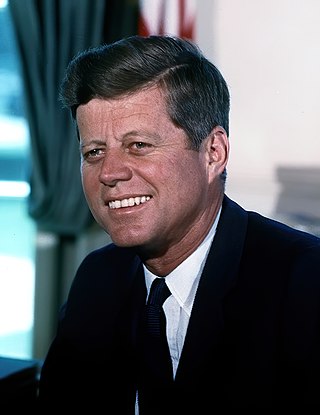 2
John Fitzgerald Kennedy, often referred to as JFK, was an American politician who served as the 35th president of the United States from 1961 until his assassination in 1963. He was the youngest...
2
John Fitzgerald Kennedy, often referred to as JFK, was an American politician who served as the 35th president of the United States from 1961 until his assassination in 1963. He was the youngest...
Princess Lalla Aicha of Morocco
 2
Princess Lalla Aicha of Morocco was the younger sister of the late King Hassan II of Morocco, and daughter of King Mohammed V of Morocco and his second wife, Lalla Abla bint Tahar.
2
Princess Lalla Aicha of Morocco was the younger sister of the late King Hassan II of Morocco, and daughter of King Mohammed V of Morocco and his second wife, Lalla Abla bint Tahar.
Jamal al-Din al-Afghani
 2
Sayyid Jamāl al-Dīn al-Afghānī, also known as Sayyid Jamāl ad-Dīn Asadābādī and commonly known as Al-Afghani, was a political activist and Islamic ideologist who travelled throughout the Muslim world...
2
Sayyid Jamāl al-Dīn al-Afghānī, also known as Sayyid Jamāl ad-Dīn Asadābādī and commonly known as Al-Afghani, was a political activist and Islamic ideologist who travelled throughout the Muslim world...
Princess Lalla Amina of Morocco
 2
Princess Lalla Amina was a member of the Moroccan royal family and former President of the Royal Moroccan Federation of Equestrian Sports.
2
Princess Lalla Amina was a member of the Moroccan royal family and former President of the Royal Moroccan Federation of Equestrian Sports.
Princess Lalla Nuzha of Morocco
 2
Princess Lalla Nuzha was a sister of the late King Hassan II of Morocco, and daughter of King Mohammed V of Morocco to his second wife, Lalla Abla bint Tahar.
2
Princess Lalla Nuzha was a sister of the late King Hassan II of Morocco, and daughter of King Mohammed V of Morocco to his second wife, Lalla Abla bint Tahar.
Louis Pasteur
 2
Louis Pasteur was a French chemist, pharmacist, and microbiologist renowned for his discoveries of the principles of vaccination, microbial fermentation, and pasteurization, the last of which was...
2
Louis Pasteur was a French chemist, pharmacist, and microbiologist renowned for his discoveries of the principles of vaccination, microbial fermentation, and pasteurization, the last of which was...
Muadh ibn Jabal
 2
Muʿādh ibn Jabal was a sahabi (companion) of the Islamic prophet Muhammad. Muadh was an Ansar of Banu Khazraj and compiled the Quran with five companions while Muhammad was still alive. He was known...
2
Muʿādh ibn Jabal was a sahabi (companion) of the Islamic prophet Muhammad. Muadh was an Ansar of Banu Khazraj and compiled the Quran with five companions while Muhammad was still alive. He was known...
Ibn Battuta
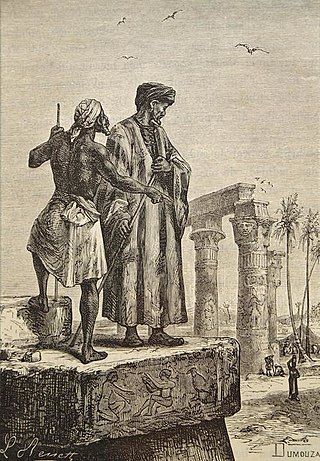 2
Abū Abd Allāh Muḥammad ibn Abd Allāh Al-Lawātī, commonly known as Ibn Battuta, was a Maghrebi traveller, explorer and scholar. Over a period of thirty years from 1325 to 1354, Ibn Battuta visited...
2
Abū Abd Allāh Muḥammad ibn Abd Allāh Al-Lawātī, commonly known as Ibn Battuta, was a Maghrebi traveller, explorer and scholar. Over a period of thirty years from 1325 to 1354, Ibn Battuta visited...
Allal ben Abdallah
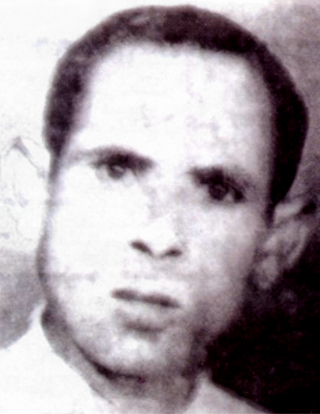 2
Allal ben Abdallah ben Bachir Zerouali was a Moroccan laborer who attempted to assassinate the French-installed Sultan, Mohammed ben Arafa.
2
Allal ben Abdallah ben Bachir Zerouali was a Moroccan laborer who attempted to assassinate the French-installed Sultan, Mohammed ben Arafa.
Abd el-Krim
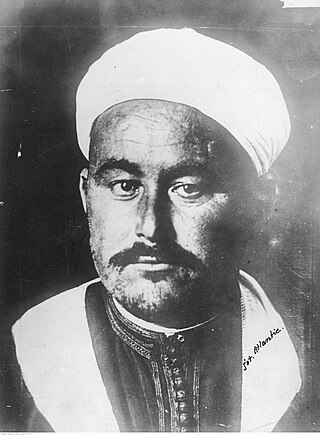 2
Muhammad ibn Abd al-Karim al-Khattabi, better known as Abd el-Krim, was a Moroccan political and military leader and the president of the Republic of the Rif. He and his brother M'Hammad led a...
2
Muhammad ibn Abd al-Karim al-Khattabi, better known as Abd el-Krim, was a Moroccan political and military leader and the president of the Republic of the Rif. He and his brother M'Hammad led a...
Khalid ibn al-Walid
 2
Khalid ibn al-Walid ibn al-Mughira al-Makhzumi was a 7th-century Arab military commander. He initially headed campaigns against Muhammad on behalf of the Quraysh. He later became a Muslim and spent...
2
Khalid ibn al-Walid ibn al-Mughira al-Makhzumi was a 7th-century Arab military commander. He initially headed campaigns against Muhammad on behalf of the Quraysh. He later became a Muslim and spent...
Omar al-Mukhtar
 2
Omar al-Mukhṭār Muḥammad bin Farḥāṭ al-Manifī, called The Lion of the Desert, known among the colonial Italians as Matari of the Mnifa, was an Imam and leader of native resistance in Cyrenaica under...
2
Omar al-Mukhṭār Muḥammad bin Farḥāṭ al-Manifī, called The Lion of the Desert, known among the colonial Italians as Matari of the Mnifa, was an Imam and leader of native resistance in Cyrenaica under...
Fatima
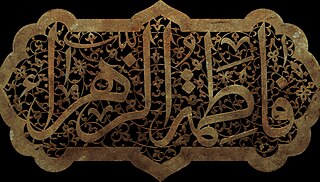 2
Fatima bint Muhammad, commonly known as Fatima al-Zahra', was the daughter of the Islamic prophet Muhammad and his wife Khadija. Fatima's husband was Ali, the fourth of the Rashidun Caliphs and the...
2
Fatima bint Muhammad, commonly known as Fatima al-Zahra', was the daughter of the Islamic prophet Muhammad and his wife Khadija. Fatima's husband was Ali, the fourth of the Rashidun Caliphs and the...
Ja'far al-Sadiq
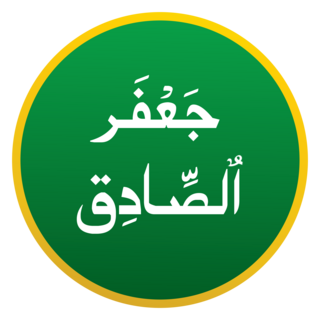 2
Ja'far ibn Muhammad al-Sadiq was a Shia Muslim scholar, jurist, and theologian, and the sixth imam of the Twelver and Isma'ili branches of Shia Islam. Known by the title al-Sadiq, Ja'far was the...
2
Ja'far ibn Muhammad al-Sadiq was a Shia Muslim scholar, jurist, and theologian, and the sixth imam of the Twelver and Isma'ili branches of Shia Islam. Known by the title al-Sadiq, Ja'far was the...